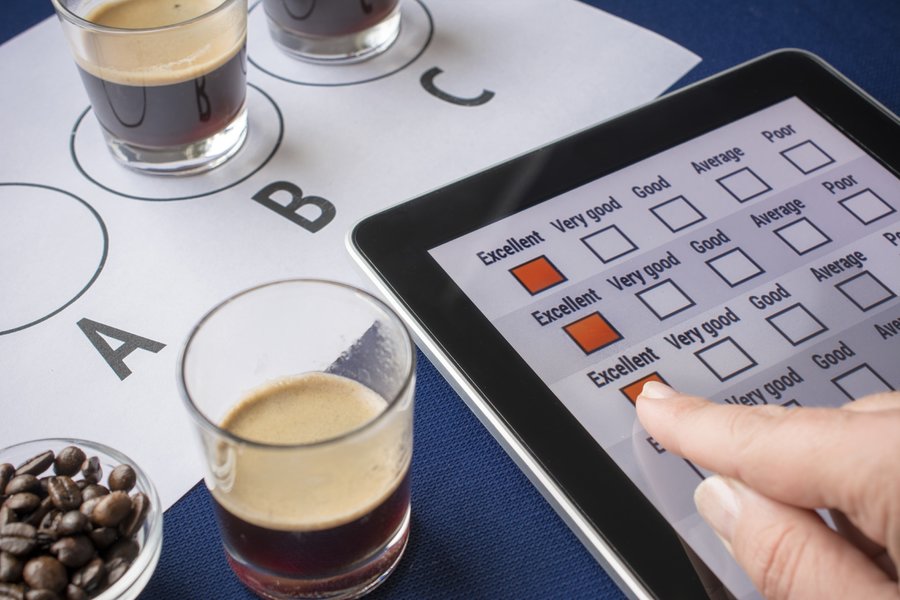ISO 75630 Sensory Evaluation in Functional Foods
The ISO 75630 standard provides a framework for sensory evaluation in functional foods. This service is crucial for ensuring that the flavor, texture, and overall sensory experience of functional food products meet consumer expectations while maintaining quality standards.
Functional foods are designed to provide specific health benefits beyond general nutrition, such as promoting heart health, improving digestion, or supporting immune function. Consumers increasingly seek these products due to their perceived health advantages over conventional foods. However, the development and production of functional foods require rigorous testing to ensure that they not only meet nutritional specifications but also deliver a consistent sensory experience.
Sensory evaluation plays a pivotal role in this process by assessing the product's taste, aroma, texture, appearance, and mouthfeel. This ensures that the functional food maintains its intended appeal and consumer satisfaction. The ISO 75630 standard provides detailed guidance on how to perform these evaluations consistently across different environments and teams.
Our laboratory adheres strictly to this standard when conducting sensory evaluations for our clients in the food and feed industry. We employ a multidisciplinary team of trained evaluators who are certified according to ISO 75630 guidelines. This ensures that all assessments are conducted with precision and repeatability.
The process begins with careful specimen preparation, which involves selecting samples representative of each batch or production run. These specimens are then evaluated using various techniques prescribed by the standard, including descriptive analysis (DA), difference testing, and consumer preference mapping. Each technique serves a specific purpose in understanding how sensory attributes contribute to overall quality perception.
Descriptive analysis allows evaluators to break down complex flavors into individual components that can be quantified. Difference tests help identify subtle differences between products or batches, ensuring consistency within a production line. Consumer preference mapping provides insights into what aspects of the product are most appealing to target demographics, aiding in formulation adjustments.
Once all evaluations are complete, our team compiles comprehensive reports detailing findings and recommendations for improvement where necessary. These reports often include statistical analyses supporting conclusions drawn from sensory data collected during testing.
This service is particularly valuable because it helps manufacturers comply with regulatory requirements while enhancing product appeal through better understanding of consumer preferences. By leveraging ISO 75630, companies can ensure that their functional foods consistently deliver on both nutritional and sensory promises made to consumers.
Understanding the nuances involved in sensory evaluation underpins our approach at Eurolab, where we pride ourselves on providing robust scientific support tailored specifically towards enhancing customer satisfaction with respect to functional food products. Through meticulous adherence to international standards like ISO 75630, we strive to deliver accurate and actionable insights that drive innovation and quality assurance in the industry.
Benefits
- Ensures compliance with ISO 75630 standards.
- Promotes consistency in sensory characteristics across different batches or production runs.
- Aids in meeting regulatory requirements and enhancing brand reputation through superior product quality.
- Supports continuous improvement by providing actionable insights into consumer preferences.
Eurolab Advantages
At Eurolab, we pride ourselves on our comprehensive approach to sensory evaluation. Our team comprises experts certified according to ISO 75630 guidelines, ensuring precision and repeatability in all assessments.
We offer a full suite of services ranging from initial sample preparation through final report generation. This includes detailed descriptive analysis, difference testing, consumer preference mapping, and more. Each step is designed to provide maximum insight into the sensory attributes that matter most to consumers.
Our state-of-the-art facilities are equipped with cutting-edge technology like gas chromatography and electronic noses, providing accurate data collection across all relevant parameters. Additionally, we offer flexible turnaround times tailored to meet your project deadlines.
We also understand the importance of confidentiality when dealing with sensitive product information. Therefore, all communications related to this service remain strictly confidential. Our commitment to excellence extends beyond technical expertise; it includes privacy and security measures that protect our clients' interests at every stage of the process.
Environmental and Sustainability Contributions
The work we do in sensory evaluation contributes positively towards sustainability goals by ensuring that functional foods not only meet nutritional standards but also deliver on their sensory promises. This dual focus supports overall health outcomes, which is increasingly recognized as a key component of sustainable development.
By promoting products that appeal to consumers while being nutritionally sound, we help reduce waste associated with rejected items that fail to satisfy customer expectations at retail stages. Furthermore, this service encourages innovation in formulation and packaging solutions aimed at enhancing user experience without sacrificing environmental impact.





